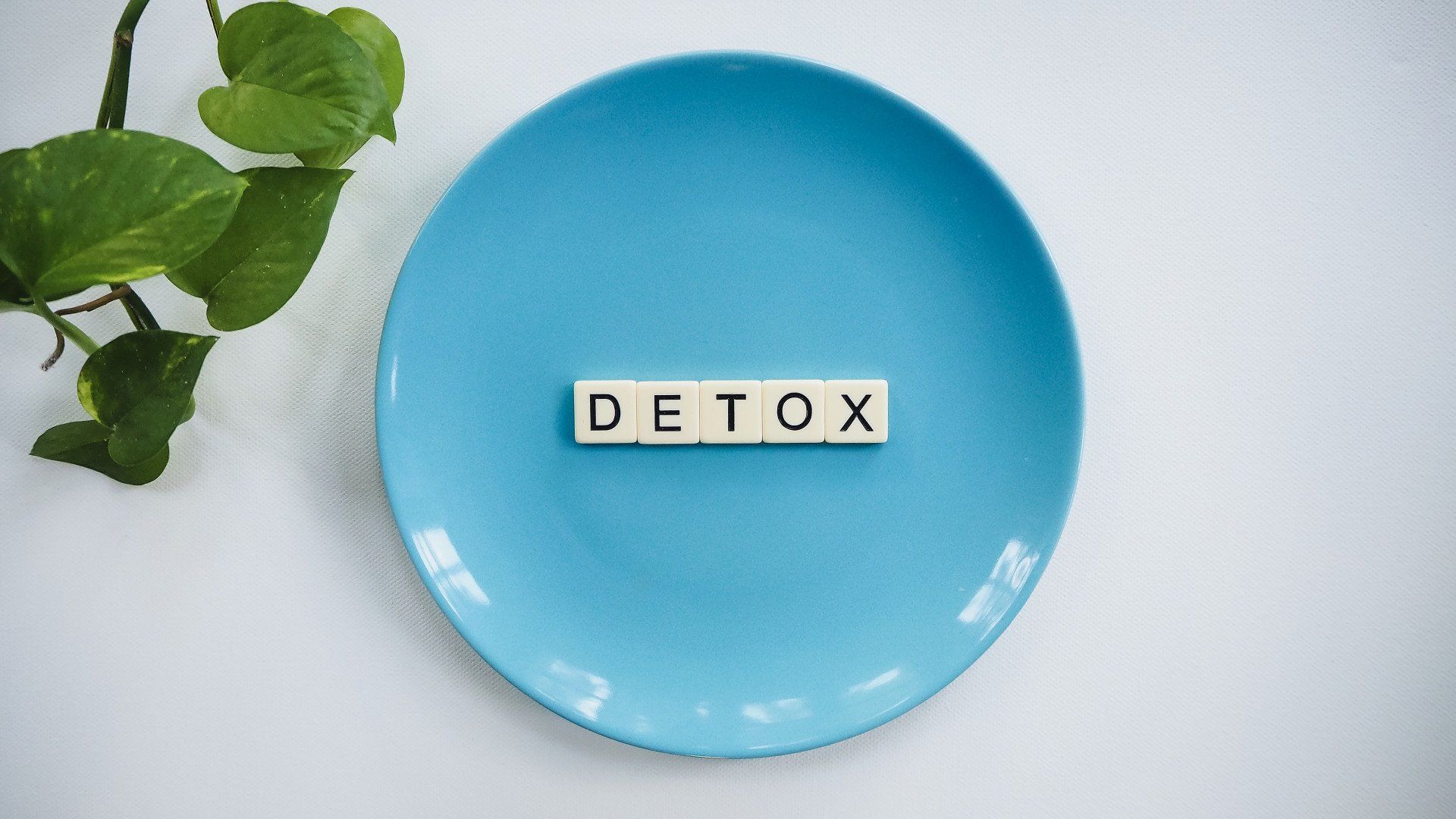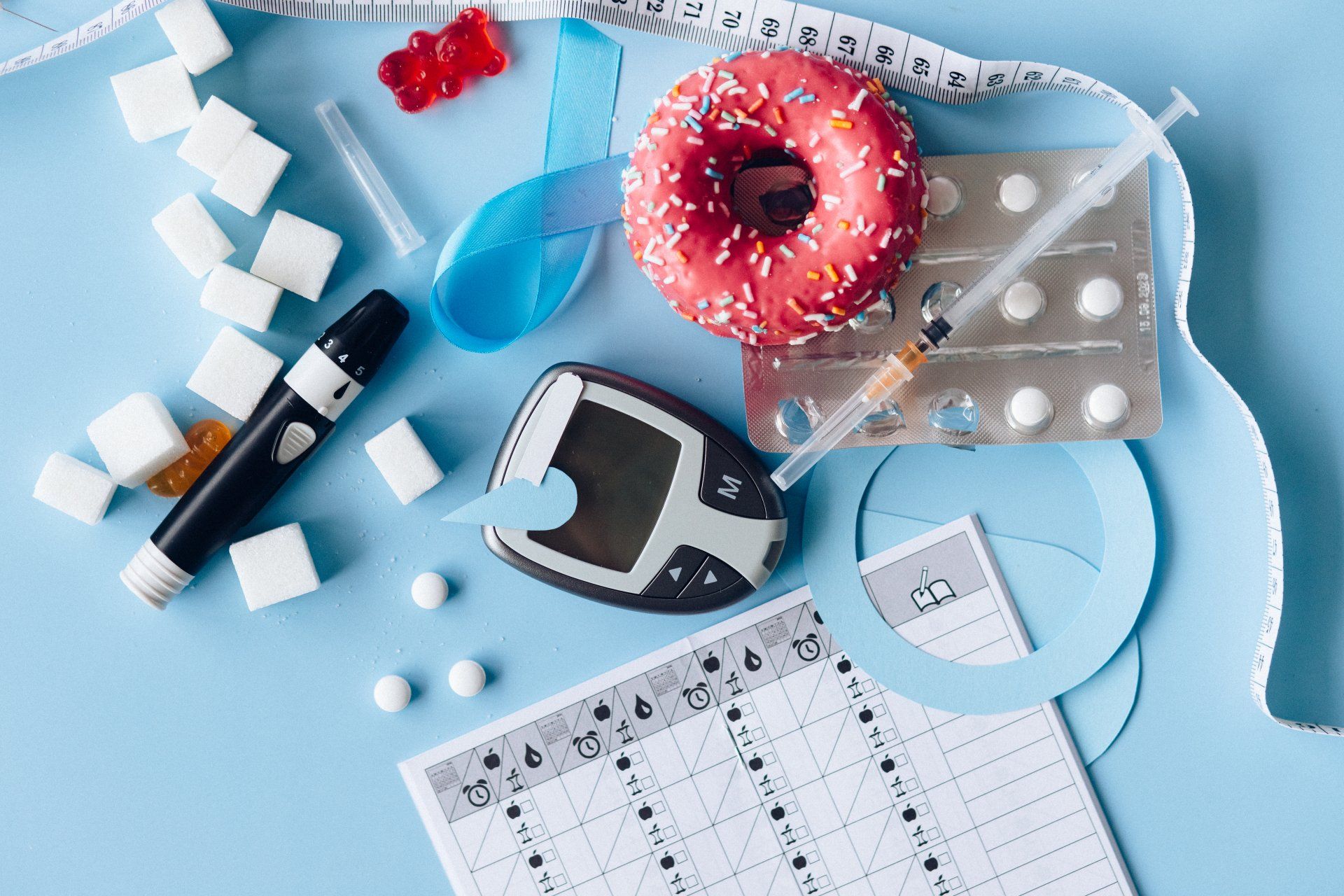Midlife Can Make You Miserable, and Depression Can Affect You in Many Ways.
Feel like middle age is closing in on you? You're not alone. People may learn to adapt to their strengths and weaknesses and value life more, let's aim to provide some information that may be beneficial to add to your library of knowledge.
Depression Trigger: Overload
Squeezed between the demands of children, aging parents, marriage, and your job? Feeling sad, worthless, and guilty? Women tend to shoulder more of the "sandwich generation" burdens -- and up to half become depressed as a result.
Solution: Make sure you're caring for yourself, too. Exercise, get enough rest, eat healthy, see friends, and get help -- for caregiving demands and depression -- if you need it.
Trigger: Low Vitamin B12
If you're feeling lethargic or depressed, too little vitamin B12 may be to blame. If you're older, you're more at risk for the B12 blues because you may not have enough stomach acid to release B12 from food.
Solution: Ask your doctor to measure levels of B12 in your blood. If it's low, talk to your doctor about diet, oral supplements, or an injection to see what might be right for you.
Trigger: Changes in Sex Drive
As men age, their bodies produce less of the important sex hormone testosterone. Low testosterone levels can cause depression, as well as erectile dysfunction (ED) -- trouble getting or keeping an erection -- and a decreased interest in sex.
Solutions: Ask your doctor to test the levels of testosterone in your blood. If it is low, ask your doctor about replacement therapy and other treatment options.
Trigger: Thyroid Disorders
Depression can be one symptom of an underactive or occasionally overactive thyroid. And if you are older, it may be the only symptom. Or it may appear with a subtle symptom. In the case of overactive thyroid, it could be accompanied by heart flutters, tremors, or fatigue. An underactive thyroid can cause constipation or fatigue. That's why this very treatable problem is often mistaken for bowel or nervous system disorders in older people.
Solution: See your doctor, especially if a close relative has thyroid disease.
Trigger: Achy Joints
Living with a condition that causes chronic pain, such as rheumatoid arthritis or osteoarthritis, increases the chance of having depression. In fact, people with chronic pain are three times as likely to have depression or an anxiety disorder. And depression can make pain worse.
Solution: Exercise, meditate, or listen to music. An hour of classical music a day has been shown to ease arthritis pain and depression. If the depression or pain doesn't lift, talk to your doctor.
Trigger: Perimenopause and Menopause
Hormone fluctuations, hot flashes, and life changes related to perimenopause and menopause can make your mood plummet. If you have trouble sleeping, a history of depression, or PMS, mood swings or depression may worsen during this transitional period.
Solutions: For mild depression, try self-calming skills such as yoga or deep breathing. Do things that make you feel better, such as exercise or going out with friends, or find a creative outlet. For more serious, long-lasting symptoms of depression, prescription medication or talk therapy can help.
Trigger: The Empty Nest
If your child has left home, an "empty nest" can make you feel empty. Going through menopause or retirement at the same time may make it harder.
Solutions: Try to see it as an opportunity. Reconnect with your spouse, other family members, and friends. Pursue hobbies and interests you didn't have time for before. Give yourself time to adjust. If your mood doesn't lift in a few months, talk to your doctor.
Trigger: Type 2 Diabetes
Do you feel too listless to check your blood sugar regularly? Are unpredictable blood sugar levels making you feel out of control? Depression is a common and dangerous complication of many chronic conditions, including diabetes. Depression also may keep you from taking good care of your diabetes.
Solution: Talk to your doctor if you've been depressed for more than two weeks. Talk therapy, medication, and better diabetes control can help you manage both conditions. Depression is serious and if left untreated can be life threatening.
Trigger: Drinking
About 1 in 4 older people who drink heavily has major depression. Some older people start drinking more because of stressful events, such as retirement or a spouse's death. Yet alcohol problems are often mistaken for other age-related issues.
Solutions: A combination of medications can treat both alcohol dependence and depression. Individual or group therapy can also help deal with issues that may trigger drinking.
Trigger: Poor Sleep
Insomnia and other sleep disruptions, which are common as we age, are closely related to depression. Insomnia can be a sign that you are depressed, and if you have insomnia but aren’t depressed, you’re at higher risk of developing mood changes. Obstructive sleep apnea and restless legs syndrome also have been linked to depression.
Solutions: Talk to your doctor about possible reasons for your sleep problems and get treatment for them. Learn good sleep hygiene habits, such as regular bedtime hours. Exercise early regularly and avoid caffeine, alcohol, or nicotine, which interfere with sleep. Prescription medication may also help.
Trigger: Retirement
If you were forced into retirement -- because of poor health or other reasons -- you might very well be depressed. Factors such as financial insecurity or lack of social support can also make retirement a downer.
Solutions: Busy retirees tend to be happier retirees. Learn new skills, take classes, get exercise. Be flexible: For example, if your health makes activities like travel difficult, take in museums and foreign films.
Trigger: Heart Problems
It's common to feel depressed after a diagnosis of heart disease or having a heart attack or cardiac surgery. But many people with heart disease go on to experience severe, long-term depression. And that can worsen heart health.
Solutions: A healthy diet and sleep, mild exercise, relaxation techniques, and joining a support group can help you get through the blues. If depression lasts, antidepressants or talk therapy can help.
Trigger: Blood Pressure Pills
Could the drugs you take for high blood pressure or other health problems also be bringing you down? Some blood pressure medicines -- as well as certain antibiotics, antiarrhythmics, acne products, and steroids, among other drugs -- may be associated with depression or other mood changes.
Solutions: Be sure to ask your doctor if any new medications you may be taking could be linked with changes in mood. If it is, you may be able to switch to another drug.
Trigger: Loneliness
Social support can help prevent or ease depression. But some kinds of social support may be better than others. A study of people in a retirement community found that those who stayed connected with friends living elsewhere had less depression. Support from within the community didn't affect mood.
Solution: Maintain ties with close friends and family members. Explore Internet technology that can give you virtual face-time with distant friends.
Health Hurdles
Any chronic or serious condition -- such as Parkinson's disease or a stroke -- can lead to depression. A stroke can also affect the areas of the brain that control mood.
Solution: Be realistic but positive. Learn how to cope with physical effects of your illness. Don't let them get in the way of taking care of yourself and having fun. If you have symptoms of depression, don't wait -- get help right away.
Trigger: Senior Moments
Feeling foggy and forgetful? It could be depression or dementia, a condition marked by memory loss. The signs and symptoms can be similar. Or it could be both -- depression is more common in older people who have dementia, especially Alzheimer's.
Solutions: If you don't know what's causing your symptoms, see your doctor so you can get the right treatment, if necessary.
Trigger: Grief
It's normal to grieve after losing a spouse or other loved one. But grief can grow into depression. Memory problems, confusion, and social withdrawal can be symptoms of depression in older people. Both grief and depression raise the risk for heart-related deaths.
Solutions: Let yourself grieve. Express your feelings to friends, in a support group, or to a grief counselor. For depression, medication and talk therapy can help.
Any-Age Mood Booster: Pets
To keep your mood up, it helps to have good emotional and social support. But who says social support needs to be human? Studies show that pets can help people have less depression and loneliness and more self-esteem and happiness. Pets are friends with other benefits, too. Walking a dog, for example, is good exercise and a great way to meet people.
Any-Age Mood Booster: Laughter
A good laugh can relax muscles, reduce stress, and relieve pain. And research suggests that a good sense of humor can take the bite out of depression. For humor on demand, create a laugh library of funny books, cartoons, and DVDs. Or try laughter yoga, which uses playful activities and breathing exercises to provoke giggles.
Any-Age Mood Booster: Volunteer
Helping others can help you forget your own problems. Volunteering feels good at any age, but it may hold special benefits for older people. If retirement has you adrift, for example, it can give your life a new sense of purpose and satisfaction. Recent research suggests that it may even prevent frailty in older people. Find a cause that has special importance to you and get involved.
Myth: Hard Work Beats Depression
Depression affects nearly one in six people at some point in their lives, so folk remedies and half-truths about this common illness abound. One such idea: throw yourself into work and you'll feel better. For a mild case of the blues, this may indeed help, but depression is a different animal. Overworking can actually be a sign of clinical depression, especially in men.
Myth: It's Not a Real Illness
Depression is a serious medical condition -- and the top cause of disability in American adults. But it's still confused with ordinary sadness. Biological evidence of the illness comes from studies of genetics, hormones, nerve cell receptors, and brain functioning. Nerve circuits in brain areas that regulate mood appear to function abnormally in depression.
Fact: Men Fly Under the Radar
A depressed man, their loved ones, and even their doctor may not recognize depression. That's because men are less likely than women to talk about their feelings -- and some depressed men don't appear sad or down. Instead, men may be irritable, angry, or restless. They may even lash out at others. Some men try to cope with depression through reckless behavior, drinking, or drugs.
Myth: Depression Is Just Self-Pity
Our culture admires will power and mental toughness and is quick to label anyone who falls back as a whiner. But people who have clinical depression are not lazy or simply feeling sorry for themselves. Nor can they "will" depression to go away. Depression is a medical illness -- a health problem related to changes in the brain. Like other illnesses, it usually improves with appropriate treatment.
Fact: Anyone Can Get Depressed
Poet or linebacker, shy or outgoing, anyone from any ethnic background can develop depression. The illness is twice as common in women as in men, but it may be that women are more likely to seek help. It's often first noticed in the late teens or 20s, but an episode can develop at any age. Tough personal experiences can sometimes trigger depression in people who are at risk for the illness. Or it may develop out of the blue.
Fact: It Can Sneak Up Slowly
Depression can creep up gradually, which makes it harder to identify than a sudden illness. A bad day turns into a rut and you start skipping work, school, or social occasions. One type, called dysthymia, can last for years as a chronic, low-level illness – a malaise that silently undermines your career and relationships. Or depression can become a severe, disabling condition. With treatment, many feel substantial relief in 4-6 weeks.
Myth: Help Means Drugs for Life
Despite the buzz about a "Prozac Nation," medication is only one of the tools used to lift depression. Asking for help doesn't necessarily mean your doctor will advise medications, although medicines can often be very helpful for significant forms of depression. Studies suggest, though, that "talk" therapy works as well as drugs for mild to moderate depression. Even if you do use antidepressants, it probably won’t be for life. Your doctor will help you determine the right time to stop your medication.
Myth: Depressed People Cry a Lot
Not always. Some people don't cry or even act terribly sad when they're depressed. Instead they are emotionally "blank" and may feel worthless or useless. Even without dramatic symptoms, untreated depression prevents people from living life to its fullest -- and takes a toll on families.
Fact: Family History Is Not Destiny
If depression appears in your family tree, you're more likely to get it too. But chances are you won't. People with a family history can watch for early symptoms of depression and take positive action promptly -- whether that means reducing stress, getting more exercise, counseling, or other professional treatment.
Myth: Depression Is Part of Aging
Most people navigate the challenges of aging without becoming depressed. But when it does occur, it may be overlooked. Older people may hide their sadness or have different, vague symptoms: food just doesn't taste good anymore, aches and pains worsen, or sleep patterns change. Medical problems can trigger depression in seniors -- and depression can slow recovery from a heart attack or surgery.
Fact: Depression Imitates Dementia
In seniors, depression can be the root cause of memory problems, confusion, and in some cases, delusions. Caregivers and doctors may mistake these problems for signs of dementia, or an age-related decline in memory. Getting treatment lifts the cloud for the majority of older people with depression. Psychotherapy can also be a useful part of treatment for older adults with depression who may be coping with loss, medical illnesses, or other life changes.
Myth: Talking Makes Things Worse
People were once advised not to "dwell on" problems by talking about them. Today, there's evidence that guided discussions with a professional can make things much better. Different types of psychotherapy help treat depression by addressing negative thought patterns, unconscious feelings, or relationship troubles. The first step is to talk to a mental health professional.
Fact: Positive Thinking May Help
The old advice to "accentuate the positive" has advanced into a practice that can ease depression. It’s called cognitive behavioral therapy (CBT). People learn new ways of thinking and behaving. Distorted negative self-talk and behavior is identified and replaced with more accurate and balanced ways of thinking about yourself and the world. Used alone or with medication, CBT works for many people.
Myth: Teens Are Unhappy by Nature
Although many teens are moody, argumentative, and intrigued by "the dark side," prolonged sadness or irritability is not normal for teens. When unhappiness lasts more than two weeks, it may be a sign of depression -- which develops in about one in 11 teens. Other signs a teen may need help include: being constantly sad or irritable even with friends, taking no pleasure in favorite activities, or a sudden drop in grades.
Fact: Exercise Is Good Medicine
Very good studies now show that regular, moderately intense exercise can improve symptoms of depression and work as well as some medicines for people with mild to moderate depression. Exercising with a group or a good friend adds social support, another mood booster.
Myth: Depression Is Tough to Treat
The reality is most people who take action to lift their depression do get better. In a large study by the National Institute of Mental Health, 70% of people became symptom-free through medications -- though not always with the first medicine. Studies show that the best treatment is often a combination of medication and talk therapy.
Fact: It's Not Always Depression
Some life events cause sadness or disappointment, but do not become clinical depression. Grief is normal after a death, divorce, loss of a job, or diagnosis with a serious health problem. One clue of a need for treatment: the sadness is constant every day, most of the day. When people are weathering difficult times appropriately, they can usually be distracted or cheered up for short periods of time.
Fact: Hope for Better Days Is Real
In the depths of depression, people may think there's no hope for a better life. This hopelessness is part of the illness, not a reality. With treatment, positive thinking gradually replaces negative thoughts. Sleep and appetite improve as the depressed mood lifts. And people who've seen a counselor for talk therapy are equipped with better coping skills to deal with the stresses in life that can get you down.
Get your passport to living life better sorted out ASAP. Fill each page with a stamp as you experience places with people you have been dreaming of going to.
Lifestyle choices certainly do a make a difference to how your body functions and feels by what you eat, exercising regularly, and get adequate rest, recovery, and sleep.
The information provided above is to give you ideas that may assist you to look at what you currently are doing, and maybe a few changes in your choices just may make a difference for your well-being.
May you enjoy living each day with a love of life with mobility and experience each day making memories with your friends and families.
Thank you for your support in reading this article and hopefully, you have found it beneficial.
"Providing Better Health Through Knowledge"






















